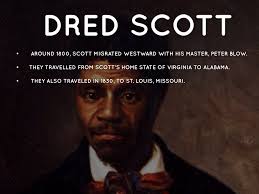This is Black Agenda Radio, a weekly hour of African American political thought and action.
Leid Stories – 09.24.15
The Constitution and Citizenship: The Dred Scott Decision (Part 2)
Last week, when the nation observed Constitution and Citizenship Day, Leid Stories began a discussion on how these two things are connected and are at the root of American “identity.”
One case, decided by the U.S. Supreme Court in 1857, proved then, and still proves to this day, that neither the Constitution nor citizenship was meant to be of benefit to all Americans. Known as Dred Scott v. Sandford, the court ruled that African Americans, specifically, whether enslaved or free, were neither meant to be beneficiaries of constitutional rights nor its protections as citizens.
Legal scholar Paul Finkelman, who teaches constitutional law, legal history and race and the law at Albany Law School in New York, is presented here discussing the constitutional origins of the issue of citizenship in a detailed examination of the landmark Dred Scott case.
Why is this case important? Why should you know about it? Because it is the formal articulation—by the nation’s highest court, no less—of the answer to the still-roiling question: Who is a citizen of the United States of America?


